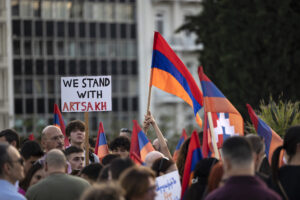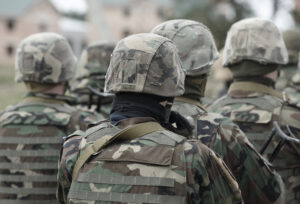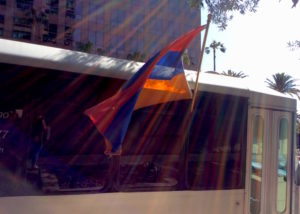Armenia, Turkey Sign Accord
Despite a last-minute hitch, Turkey and Armenia signed an agreement normalizing relations. The accord comes almost a century after the killing of hundreds of thousands of Armenians in 1915, an action for which Turkey denies responsibility. Under the agreement, a panel of independent historians will study the genocide issue.
Despite a last-minute hitch, Turkey and Armenia signed an agreement normalizing relations. The accord comes almost a century after the killing of hundreds of thousands of Armenians in 1915, an action for which Turkey denies responsibility. Under the agreement, a panel of independent historians will study the genocide issue.
Your support matters…The BBC:
Under the agreement, Turkey and Armenia are to resume diplomatic ties and re-open their shared border.
The accord has been met by protests in Armenia, where many people say it does not fully address the 1915 killing of hundreds of thousands of Armenians.
[…] Turkish Foreign Minister Ahmet Davutoglu and his Armenian counterpart, Edward Nalbandian, signed the protocols in Switzerland after a delay of more than three hours.
The BBC’s Kim Ghattas in Zurich says the Armenians had apparently raised objections to remarks due to be read out by the Turkish delegation.
After the signing neither side issued a statement, and our correspondent says this seems to have been the compromise arranged by US officials.
[…] The accord needs to be ratified by the parliaments of both countries.
Independent journalism is under threat and overshadowed by heavily funded mainstream media.
You can help level the playing field. Become a member.
Your tax-deductible contribution keeps us digging beneath the headlines to give you thought-provoking, investigative reporting and analysis that unearths what's really happening- without compromise.
Give today to support our courageous, independent journalists.






You need to be a supporter to comment.
There are currently no responses to this article.
Be the first to respond.